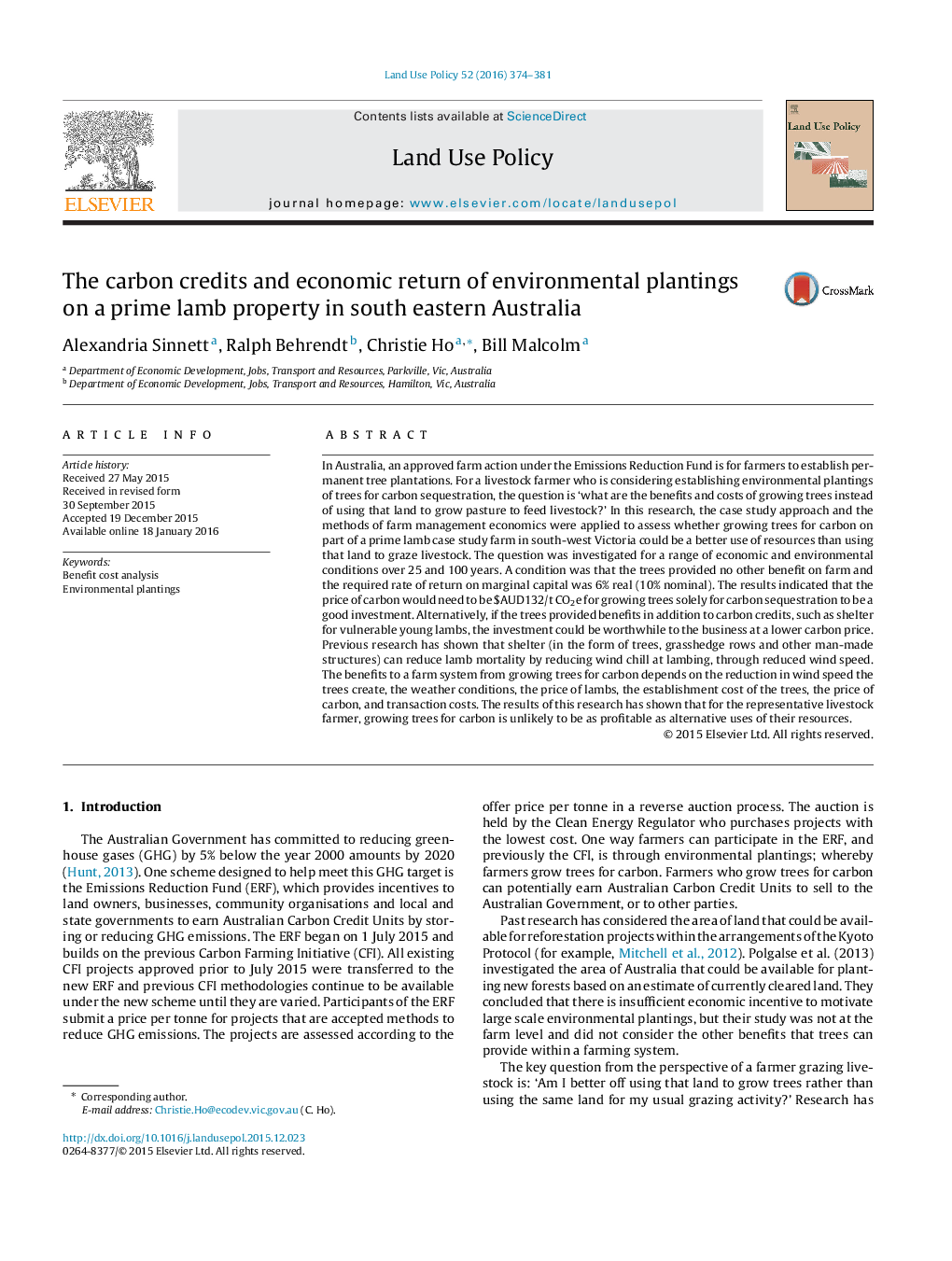| Article ID | Journal | Published Year | Pages | File Type |
|---|---|---|---|---|
| 6547492 | Land Use Policy | 2016 | 8 Pages |
Abstract
In Australia, an approved farm action under the Emissions Reduction Fund is for farmers to establish permanent tree plantations. For a livestock farmer who is considering establishing environmental plantings of trees for carbon sequestration, the question is 'what are the benefits and costs of growing trees instead of using that land to grow pasture to feed livestock?' In this research, the case study approach and the methods of farm management economics were applied to assess whether growing trees for carbon on part of a prime lamb case study farm in south-west Victoria could be a better use of resources than using that land to graze livestock. The question was investigated for a range of economic and environmental conditions over 25 and 100 years. A condition was that the trees provided no other benefit on farm and the required rate of return on marginal capital was 6% real (10% nominal). The results indicated that the price of carbon would need to be $AUD132/t CO2e for growing trees solely for carbon sequestration to be a good investment. Alternatively, if the trees provided benefits in addition to carbon credits, such as shelter for vulnerable young lambs, the investment could be worthwhile to the business at a lower carbon price. Previous research has shown that shelter (in the form of trees, grasshedge rows and other man-made structures) can reduce lamb mortality by reducing wind chill at lambing, through reduced wind speed. The benefits to a farm system from growing trees for carbon depends on the reduction in wind speed the trees create, the weather conditions, the price of lambs, the establishment cost of the trees, the price of carbon, and transaction costs. The results of this research has shown that for the representative livestock farmer, growing trees for carbon is unlikely to be as profitable as alternative uses of their resources.
Related Topics
Life Sciences
Agricultural and Biological Sciences
Forestry
Authors
Alexandria Sinnett, Ralph Behrendt, Christie Ho, Bill Malcolm,
